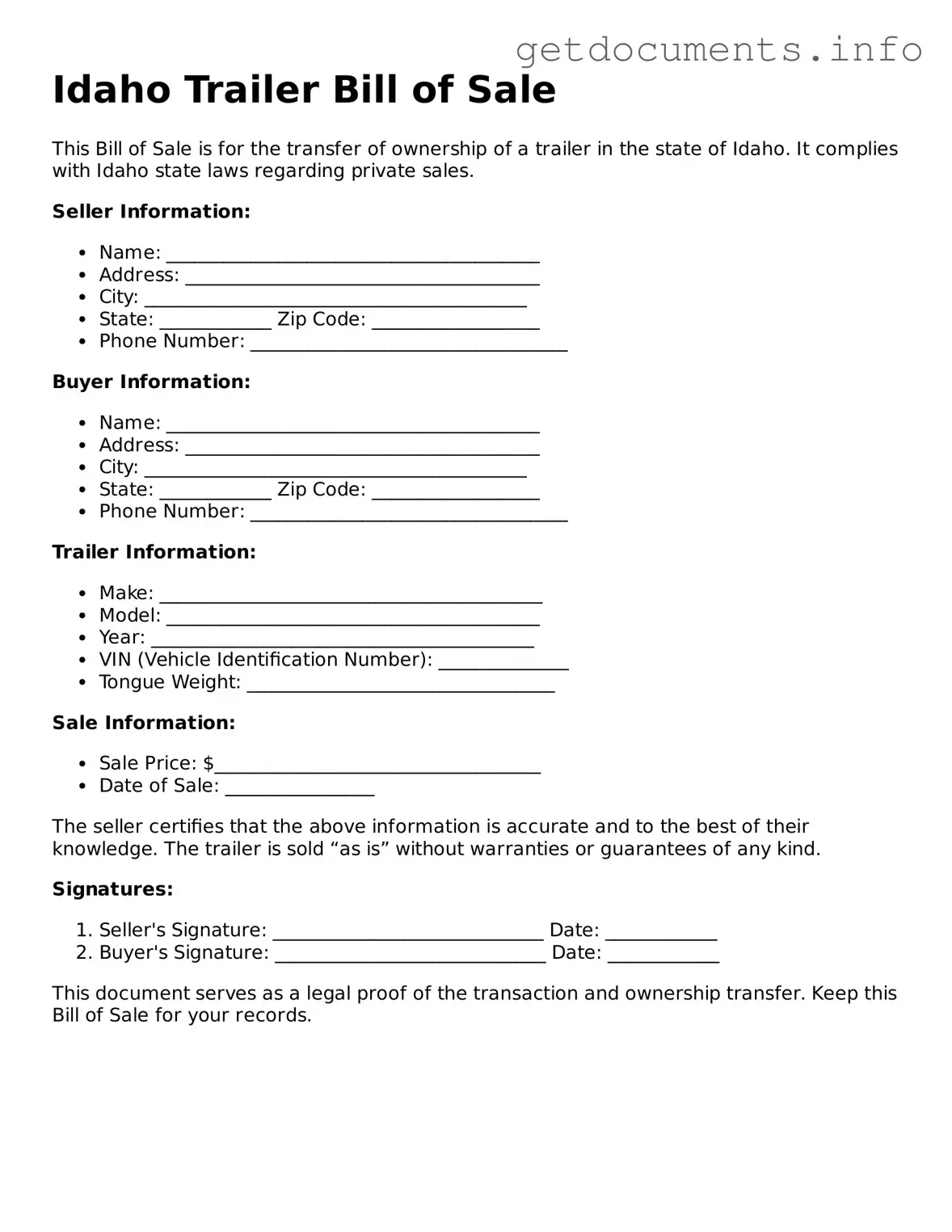Free Trailer Bill of Sale Template for Idaho
The Idaho Trailer Bill of Sale form is a legal document used to transfer ownership of a trailer from one party to another. This form ensures that both the buyer and seller have a clear record of the transaction, protecting their rights and interests. For a smooth transfer process, fill out the form by clicking the button below.
Access Trailer Bill of Sale Editor

Free Trailer Bill of Sale Template for Idaho
Access Trailer Bill of Sale Editor
Got places to be? Complete the form fast
Fill out Trailer Bill of Sale online and avoid printing or scanning.
Access Trailer Bill of Sale Editor
or
⇩ PDF File
